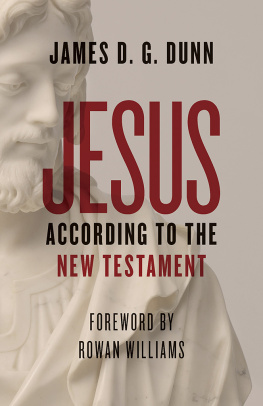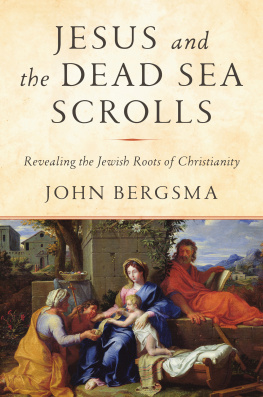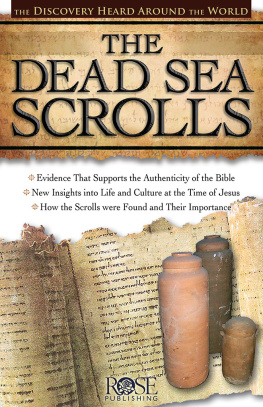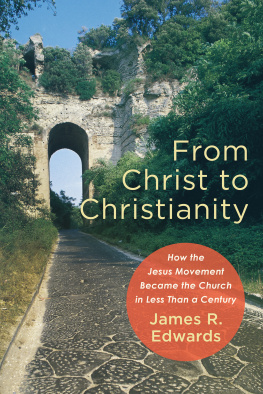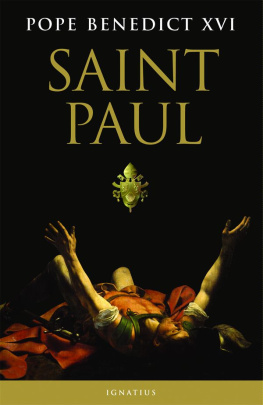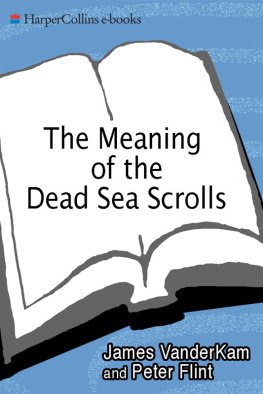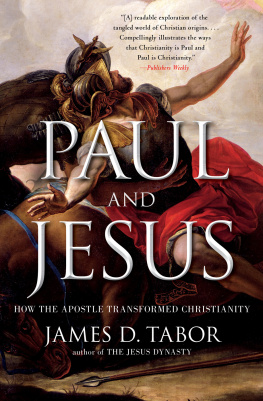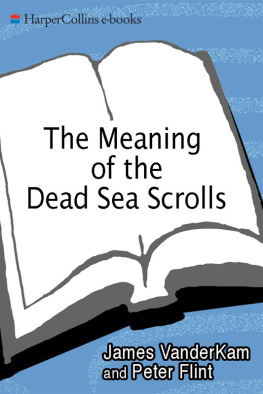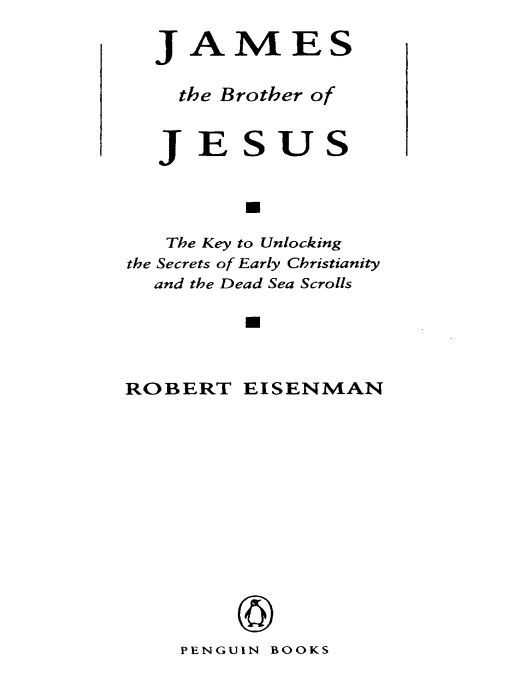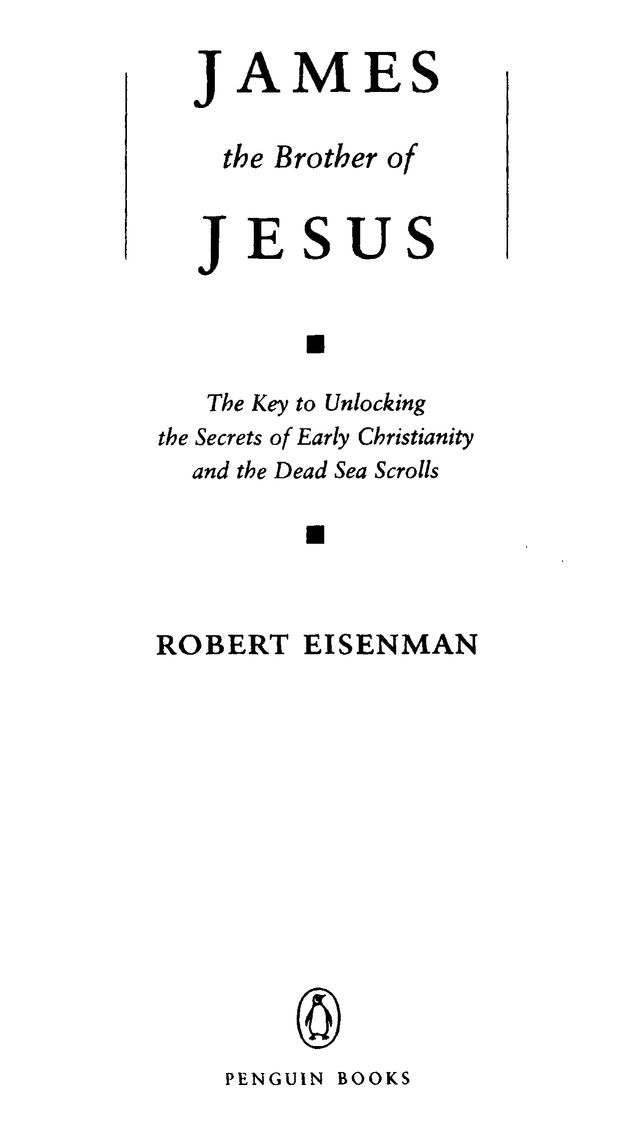Table of Contents
Acclaim forJames the Brother of Jesus
Stirs up a furor.
Los Angeles Times
Robert Eisenmans James the Brother of Jesus is less a book than an irresistible force. Once opened... [it] bulldozes your prejudices, flattens your objections, elbows aside your counter-arguments, convinces you.
Toronto Globe Mail
Powerful.... A thrilling essay in historical detection ... this passionate quest refigures Christian origins.
The Guardian
Mind-blowing.... A masterpiece.... The breadth and detail of Eisenmans investigations are breathtaking, as are its implications. Eisenman shows us how to crack the codes of theological disinformation, to listen to the long-faded echos, to find handholds up what seemed an unsurmountable climb to a peak from which to view a hitherto unseen landscape.... A massive and profound achievement.
R. Price, Editor, Journal of Higher Criticism
A tremendous work of historical scholarship ... Expert ... Unparalleled ... Great ... This book will live and live and live.
A. Auswaks, Jerusalem Post
Careful... Passionate... So logical and so compelling, one wonders how this demythologized, internally consistent understanding of Christianity could have been kept out of sight for so long.
The Scotsman
Enthralling ... Immense ... Stunning ... Compelling ... A massive display of provocative scholarship.
The Oregonian
Professor Robert Eisenman speaks with the fervor of a true believer who has been shown a revelation of stunning splendor ... [his] words, theories, and personal style have all made a deep impression on me.... A tour de force... magnificent.
Neil Asher Silberman, author of The Hidden Scrolls
PENGUIN BOOKS
JAMES THE BROTHER OF JESUS
Robert Eisenman, coauthor of The Facsimile Edition of the Dead Sea Scrolls and The Dead Sea Scrolls Uncovered, is Professor of Middle East Religions and Archaeology and Director of the Institute for the Study of Judeo-Christian Origins at California State University, Long Beach; and Visiting Senior Member of Linacre College, Oxford University. The consultant to the Huntington Library in its decision to free the Scrolls, he was the leading figure in the worldwide campaign to gain access to the Scrolls. A National Endowment for the Humanities Fellow at the Albright Institute of Archaeological Research in Jerusalem, he was a Senior Fellow at the Oxford Centre for Postgraduate Hebrew Studies.
For:
Monobazus and Kenedaeos, the grandsons of the Ethiopian Queen,
Freedom Fighters and Converts, who gave their lives
at the Pass at Beit Horon
Jesus son of Sapphias, the Leader of the Galilean Boatmen
and the Party of the Poor, who poured out their blood
until the whole sea of Galilee ran red
and
Orde Wingate and Jonathan Netanyahu
Acknowledgements
For their help in this volume I most particularly wish to thank Michael Baigent and my wife, Heather, for long hours of work labouring over difficult passages and proofs. I would like to thank Jane Baigent for her patience as well.
I also wish to thank Julian Loose at Faber and Faber for his constant encouragement, understanding, and deft hand. Ron Dubay, my student at California State University Long Beach, was a great help in reading parts of the manuscript, preparing charts, and working on the index. Thanks are also due to Luke Vinten.
I would also like to thank the President and Provost of California State University Long Beach, and, in particular, James Brett and the University Research Committee for their unstinting support. I would also like to thank Peter Mayer and Robert Dreesen at Viking/Penguin, who went a long way to help making this work possible.
Professor Robert Morgan of Oxford University read over some sections of the manuscript. His tolerant encouragement has always meant much to me. Neil Asher Silberman also gave me every encouragement, both in person and in writing, as did the innumerable others who have written me and whose letters, because of lack of facilities on my part and the work of this manuscript (deemed more important than personal responses), have gone unanswered. It is hoped that they will consider this book an adequate response.
Once Perfection comes, all imperfect things will disappear.
When I was a child, I spoke as a child, I thought as a child,
I reasoned as a child. But when I became a man,
I put aside childish things. For the moment we see as
through a glass darkly, but in time, face to face.
1 Corinthians 13:11-12
Our Lord and Prophet, who has sent us, declared to us that the Evil One,
having disputed with him forty days, but failing to prevail against him,
promised He would send Apostles from among his subjects to deceive
them. Therefore, above all, remember to shun any Apostle, teacher, or
prophet who does not accurately compare his teaching with [that of]
James ... the brother of my Lord... and this, even if he comes to you
with recommendations.
Pseudoclementine Homilies 11.35 (Peter preaching at Tripoli)
Introduction
James the brother of Jesus, usually known as James the Just because of his surpassing Righteousness and Piety, is a character familiar to those with some knowledge of Christian origins. He is not so well known to the public at large, an inevitable if peculiar result of the processes being described in this book.
James is not only the key to unlocking a whole series of obfuscations in the history of the early Church, he is also the missing link between the Judaism of his day, however this is defined, and Christianity. In so far as the Righteous Teacher in the Dead Sea Scrolls occupies a similar position, the parallels between the two and the respective communities they led narrow considerably, even to the point of convergence.
In the introduction to an earlier book on this subject in 1983,
Maccabees, Zadokites, Christians and Qumran, I wrote with specific reference to James as follows:
In providing an alternative historical and textual framework in which to fit the most important Dead Sea Scrolls, it is to be hoped that most of the preconceptions that have dominated Scrolls research for so long will simply fade away and new ideas will be brought into play and previously unused sources given their proper scope. When this is done, individual beings, the facts of whose lives tradition has distorted beyond recognition or who have been otherwise consigned to historical oblivion, will spring immediately to life and a whole series of associated historical fabrications and accusations evaporate.
It is to the task of rescuing James, consigned either on purpose or through benign neglect to the scrapheap of history, that this book is dedicated.
Mentioned in various contexts in the New Testament, James the Just has been systematically downplayed or written out of the tradition. When he suddenly emerges as a principal personality and leader of the Jerusalem Church or Community in Acts 12:17, there is no introduction as to who he is or how he has arrived at the position he is occupying. Acts subsequent silence about his fate, which can be pieced together only from extra-biblical sources and to some extent seems to have been absorbed into the accounts both about the character we now call Stephen and even Jesus himself, obscures the situation still further.


